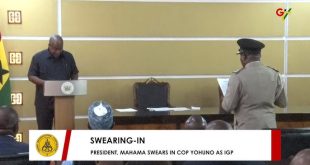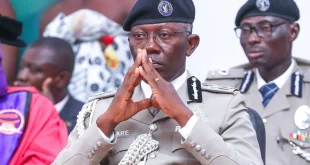On Friday, January 19, the International Monetary Fund’s (IMF) Executive Board authorized Ghana’s second tranche of US$600 million to carry out the Post-COVID-19 Programme for Economic Growth (PC-PEG).
This comes one week after the nation came to an agreement with its Official Creditors and after the first review of the US$3 billion, three-month Extended Credit Facility (ECF) arrangement was successfully completed.
The Fund noted that Ghana had performed admirably under the program, meeting nearly all indicative targets and structural benchmarks as well as all quantitative performance criteria for the first review.
“The completion of the first ECF review allows for an immediate disbursement of Special Drawing Right (SDR) 451.4 million (about US$600 million), bringing Ghana’s total disbursements under the arrangement to about US$1.2 billion,” the Fund said in a statement issued on Friday evening.
“Continued efforts to protect the vulnerable and to create space for higher social and development spending are also key,” Mr Bo Li, Deputy Managing Director and Acting Chair, IMF, said in the statement.
In addition, he urged the government to strengthen expenditure control, manage arrears better, and strengthen fiscal institutions and regulations.
In order to guarantee long-lasting adjustment, Mr. Li added, it was critical that the government enhance the management of State-Owned Enterprises (SEOs).
Aiming to restore macroeconomic stability and debt sustainability, Ghana’s three-year USS3bn PC-PEG with the IMF includes extensive reforms to fortify resilience and establish the groundwork for more robust and inclusive growth.
The Fund noted in the statement that the Ghanaian authorities had taken firm action to control inflation and replenish foreign reserve buffers.
Achieving the program’s goals also required it to maintain an appropriately strict monetary policy and increase exchange rate flexibility.
To lessen the effects of the domestic debt restructuring on financial institutions, the Bank of Ghana (BoG) also used its regulatory and supervisory tools.
Source: Ghanatodayonline.com
 Ghanatodayonline.com News, Politics, Health, Education & More
Ghanatodayonline.com News, Politics, Health, Education & More




